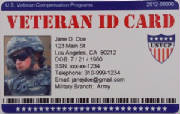|
|
|
|
|
|
Special Monthly Compensation To receive an SMC (s) (Housebound) award, you must either: Meet all of the following:
or
Be housebound: Your disabilities must directly cause you to be substantially confined to your home and the immediate premises or, if you are in an institution, to the ward or clinical areas Also, it must be reasonably certain that your disability or disabilities and confinement will continue for the rest of your life
To receive an SMC (t) award you must:
Eligibility for Aid and Attendance Usually, you may qualify for regular Aid and Attendance (A&A) benefits based on any of the following circumstances:
When you apply for Aid & Attendance, your evidence must show that you actually need personal assistance from others. But you don’t need to show that you need it all the time, just that you need it regularly.
Spouses may also qualify for Aid & Attendance benefits. If you are a veteran with a 30% or greater combined VA service-connected disability rating, and your spouse needs the aid and attendance of another person, you may be entitled to get a spouse-related Aid & Attendance compensation.
Usually, if you get VA disability compensation and you qualify for Aid & Attendance benefits, the VA will pay you at the SMC-L rate instead of your normal monthly disability compensation. There are exceptions to this, which can sometimes get you an increase in compensation or a larger amount altogether.
For more information on disabling conditions that the VA considers for Aid & Attendance, see your VSO. |
|
|
|
|
|
|

